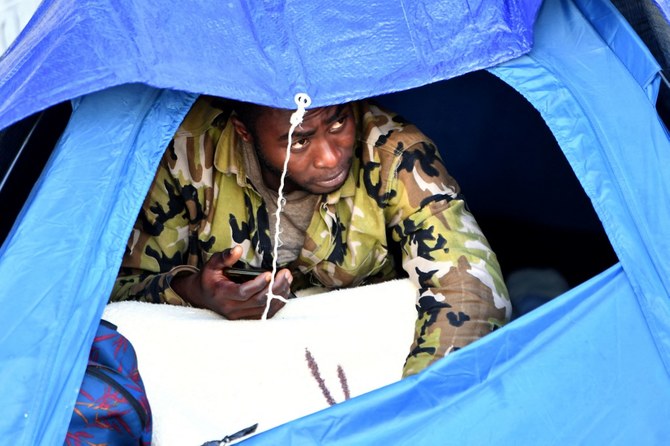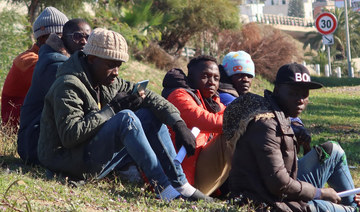LONDON: Migrants from the Ivory Coast and other sub-Saharan countries are attempting to flee to Europe after an uptick in violence against them in Tunisia.
North Africa has long been used as a staging post for people desperate to leave the continent and travel northward, but numbers have increased after Tunisian President Kais Saied blamed migrants for an increase in crime in his country, and claimed their presence was part of a plot to “change the demographic makeup” of Tunisia.
That has led to a number of migrants facing violence or eviction from their accommodation. Some have even been shot at.
One Ivorian migrant, 30-year-old Noela, told The Times: “My husband was arrested, I have been robbed at knifepoint and I am scared to leave home. People here were nice, but now things have changed.”
Many are now buying boats in order to strike out for Italy, despite efforts by Italian Prime Minister Giorgia Meloni to curb the number of migrants traveling to the peninsula.
An activist in the Tunisian port town of Sfax, which is seeing the bulk of the traffic, said: “Sailings are linked to that speech (by President Saied) and Ivorians are the biggest group among those leaving.”
Meloni claims charity organizations running boats in the region are helping migrants to make dangerous crossings, and has warned Europe faces “an invasion” if more is not done to stop the flow. So far this year 20,000 people have successfully made the journey to Italy, with 12,000 of those coming from Tunisia.
At least 80 people died in the Mediterranean last month on the way to Italy from Turkey, while 30 more drowned off the coast of Libya last week.
Between March 6 and 12, Ivorians, whose country has seen a number of civil wars since the turn of the century, made up the largest single group among the 3,300 people who made the trip to Italy, most via the island of Lampedusa. Another 1,500 people, mostly from sub-Saharan Africa, were turned back by the Tunisian coast guard.
A Tunisian people smuggler told The Times that many were making the trip now as it was “the last chance for them” amid Tunisia’s increasing hostility and Italy tightening its rules.
Another smuggler added that Tunisians were increasingly refusing to travel with sub-Saharans across the sea so as not to give away their identity on account of their skin color, leading to migrants buying vessels to pilot themselves.
“They have no jobs, no food, nothing. This has convinced them to go as soon as possible,” he told The Times. “They are good — they don’t steal boats, but they buy them.”
Ivorian DJ Dobe Aboubacar, based in Tunis, said most of his countrymen in Tunisia planned to leave for Germany or France.
“Because of the poor economy in Tunisia — and then because of the president’s speech — even more now want to leave,” Aboubacar, who runs a Facebook page for migrants in Tunisia, added.


























